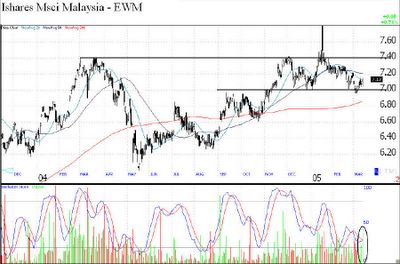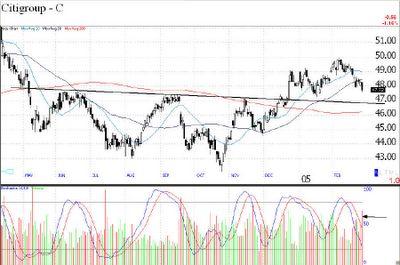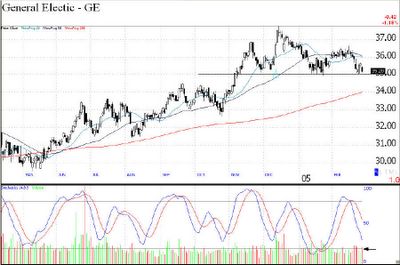As I said on Monday, I am not so sure that any hard landing scenario will necessarily be kicked off by dollar selling. Based on Kash's sevenfold path through a hard landing, maybe we are already at step 4. If we do see market weakness in stocks, real estate, or credit spreads (i'm adding that one), it should shake up monetary and fiscal policies. Once that happens we get to watch the policy decisions to see if market weakness will translate into real economic weakness.
I have some general beliefs about what might happen but guessing my way through the possible scenarios is a bit beyond me.
- There will be some sort of market event with the most likely candidates being housing and interest rates.
- This market event will ultimately require international cooperation (G7, G10). It may take a series of trials (maybe a series of crises) by various CBs and governments but eventually they will need to coordinate policy. The world will need to decide how to handle the issue of the weakening dollar as its main reserve currency.
- On a related note, foreign CBs will not turn net sellers of dollar assets. They will stop adding to USD reserves which still creates a substantial problem for U.S. interest rates. The markets will continue testing the CBs' appetite for dollars until we see real policy changes and a market determined equilibrium.
- Unemployment seems like the best indicator of how hard or soft the landing is in the real economy. Below the June '03 high of 6.3% seems like a good definition of a soft landing for the U.S.
- The U.S. current account deficit will get worked off through the growth of emerging market consumption rather than U.S. economic contraction. These emerging economies are the logical target for the world's investment dollars so once the market regains control of capital distribution they should see some benefits.


